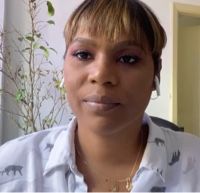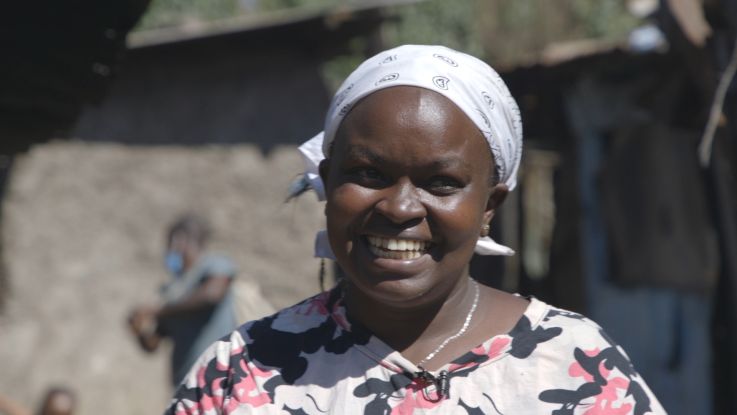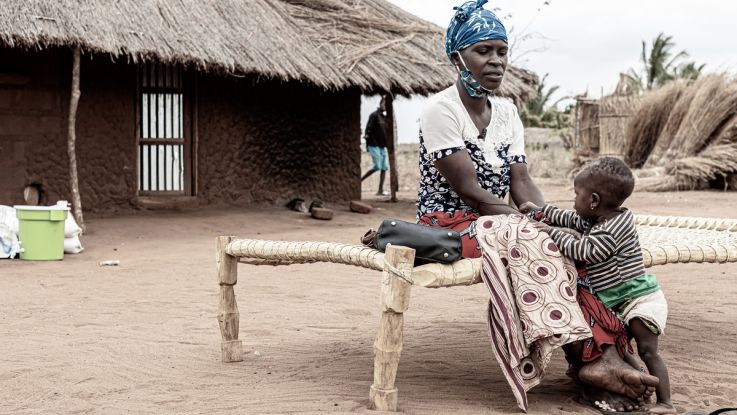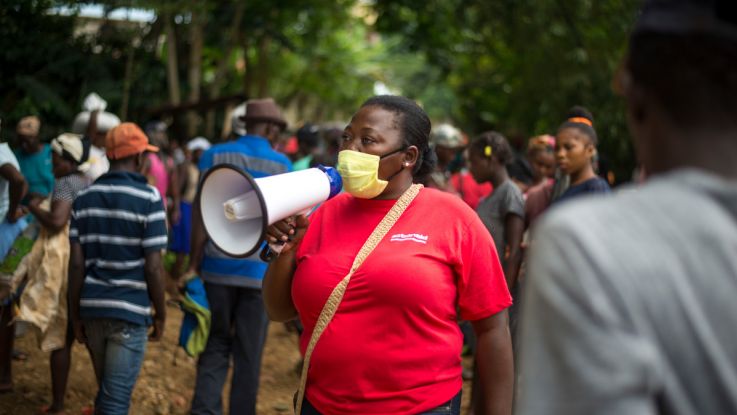Fighting fake news in the favelas: how I recovered from Covid-19
21 August 2020
Claudia Dias is a Woman's Rights Advisor at ActionAid Brazil who contracted Covid-19. Here she talks about her experience and how coronavirus has gripped Brazil, a global epicentre of the pandemic.
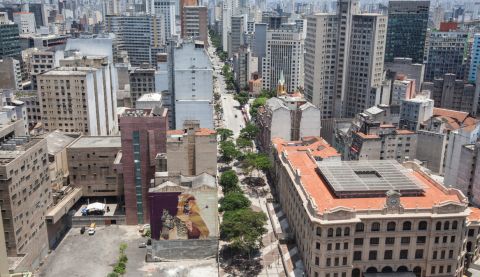
Heliopolis in São Paulo is one of the biggest favelas in Brazil. Photo: ActionAid
At the end of February, as spring slowly seeped in and temperatures started rising in Rio de Janeiro where I live, little did I know the world was about to come to a grinding halt.
Coronavirus was spreading around the globe and we had all been watching the news, but we were still not sure if and how much it would affect my country, Brazil. We started having conversations with other ActionAid offices and began to prepare for the worst.
How the coronavirus outbreak started in Brazil
On March 3, Brazil recorded its first two official cases. It was two people who had travelled to Italy and back to São Paulo in February who had started showing flu-like symptoms.
It was early days, but we knew the virus spread from human contact and was highly infectious.
We knew immediately that this would be a disaster in the favelas - the densely packed urban neighbourhoods - where several people live in the same house, often in one-room buildings which are just a few square metres.
The thing that most concerns me is that in the most vulnerable areas like the favelas and rural areas people are having issues with lack of water, sanitation, food and hygiene kits."
I had also heard how mandatory quarantines were making lives hard for those who rely on labour and other informal work, and horror stories of domestic violence cases around the world.
And before you know it, we were getting local reports of how people here were struggling to keep their jobs, to earn enough to feed their families and hearing reports of rising domestic abuse in houses under lockdown.
The thing that most concerns me is that in the most vulnerable areas, like the favelas and rural countryside, people are having issues due to lack of water, sanitation, food and hygiene kits.
Helping local people survive the Covid-19 pandemic
In Brazil, we adopted social isolation from early March. The government gave people an emergency stipend payment, but there was still a lack of money to buy groceries, a lack of money to buy hygiene kits, and lack of space for people to isolate themselves from others.
But within the last few months, we have seen several, positive social movements steadily brewing up from the favelas."
Fake news has also spread like wildfire in parts of the country. When the government started its stipend scheme, there was a lot of false information about how to access this kind of money. Hoaxers were creating virtual lines for people to call into, using fake apps, and asking for subscriptions from people and taking their details.
We also heard a lot of misinformation that people don't have to use masks, that everybody's infected and masks won't work. Or how we can just take a certain drug to avoid getting Covid-19.
But within the last few months, we have seen several, positive social movements steadily brewing up from the favelas.
From civil society to members of the community, everyone has been trying to distribute information by sending WhatsApp messages and using their social platforms to try to share reliable information about how to prevent the spread of and contain the coronavirus.
We are talking to people about how they can avoid getting Covid-19 even when they are living in a house with ten people to a room; how to wash their hands; and how to reach out for help.
The community members are also giving people food and hygiene kits. I know it's not much, but it's important work that they are doing and we at ActionAid are supporting these movements to distribute this reliable information and deliver food and hygiene kits.
My fear is that people might get infected and won't have access to public services or the health system.
Our health system was already overloaded with people before the pandemic. And now with the outbreak, they will not able to treat everyone properly.
When I contracted the Covid-19 disease
In May, I was infected with coronavirus and fell severely ill.
I started noticing symptoms that were just like the regular flu. I had a cough, a fever, my throat was sore and aching. I thought it as some kind of an allergic reaction. But the next day the fever rose higher, and during a team meeting my ears started aching and my eyes turned red within minutes, just like a bad case of conjunctivitis.
At the height of my disease, I wasn't afraid. I didn't feel scared because I had information which is the key to overcome this disease."
It was horrible and I was feeling a bit worried. I reached out to my doctors and had a video appointment with the physician and she told me to get tested immediately. She asked me to keep an eye on my symptoms and to report shortness of breath or pain.
The next day, my condition worsened. I started feeling nauseous, had chest pain, I couldn't breathe easily and had diarrhoea.
At the height of my disease, I wasn't afraid. I didn't feel scared because I had information which is the key to overcome this disease.
I stayed home for a month to avoid contact with other people. I took sick leave and ActionAid helped me a lot. I have a great team and my boss and my co-workers were very supportive.
Hope for the future of Brazil
In Rio de Janeiro, our government and the mayor of the city have decided to open up the stores and to open up the economy.
Brazil is now considered one of the main epicentres of Covid-19 and it makes me really sad that a huge majority of people will never have access to the healthcare they need.
But I have hope, that after all of this, we can change as humankind, that we can look at each other differently, that we start fighting strongly for a world with no inequalities."
I had the harshest of Covid-19 symptoms, but I was able to recover because I was able to take sick leave and get help from doctors, my family, my husband and my co-workers.
I was lucky to have health insurance, but the most marginalised people suffering from Covid-19 can't afford basic healthcare and struggle to get access to our health system and don't have this kind of help, support and information.
These people are on the news every day, telling their stories - tragic stories of people that reached out for help and couldn’t get the support they needed in time, and died while waiting to be tested.
Two weeks ago, my best friend's father died of Covid-19 and I don't want any more people dying.
But I have hope, that after all of this we can change as humankind, that we can look at each other differently, that we start fighting strongly for a world with no inequalities - for a world where people can get the treatment that they need through a public, universal, and free healthcare system.
There are a lot of people in the streets right now protesting and I'm very hopeful that we can fight this virus.
More than ever, I feel the urge to help others because one lesson that we have learned from this pandemic is that we have to help others.
I want us to strive to survive and to overcome this disease united as one people, as one nation, fighting against coronavirus.
How you can help
ActionAid is on the frontline of the coronavirus crisis helping to save lives as the pandemic spreads through the world’s poorest countries.
We are distributing life-saving advice, health information and hygiene kits to vulnerable communities.
We are also distributing food packages and essential supplies, working to stop violence before it happens, and provide support to women and girls who are affected.
Please donate now to help us reach people in urgent need.
